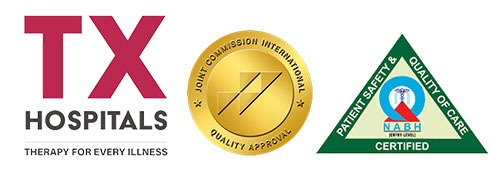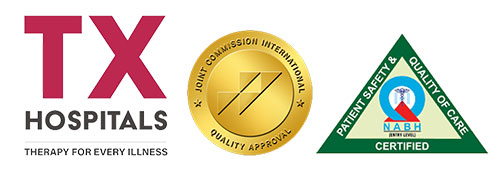Total Gastrectomy
Total Gastrectomy is a surgical procedure that involves the removal of the entire stomach to treat certain conditions such as stomach cancer, severe peptic ulcer disease, or other rare conditions. During the procedure, the esophagus is connected directly to the small intestine, and the surgeon may also remove nearby lymph nodes if necessary. This surgery requires a hospital stay and a significant period of recovery, but can provide long-term relief for some patients.
Indications Total Gastrectomy:
It is usually recommended for the following conditions:
- Stomach cancer: When cancer cells have spread throughout the stomach and cannot be removed through less-invasive procedures like endoscopy or partial gastrectomy.
- Severe peptic ulcer disease: When ulcers have caused significant damage to the stomach lining, or if there is a high risk of cancer development.
- Hereditary diffuse gastric cancer: A rare genetic condition that predisposes patients to develop stomach cancer at a young age.
Preparation Before undergoing Total Gastrectomy, patients must undergo a series of tests to evaluate their overall health and the extent of the condition. These may include blood tests, imaging studies, and endoscopy. Patients may need to stop taking certain medications, and they will be given instructions on how to prepare for the surgery itself, such as fasting for a period of time before the procedure.
Procedure:
Total Gastrectomy is typically performed under general anesthesia and may take several hours to complete. The surgeon will make an incision in the abdomen to access the stomach, and then remove the entire organ, as well as any nearby lymph nodes. The esophagus is then connected directly to the small intestine, usually using a technique called Roux-en-Y reconstruction. The surgeon will then close the incision with sutures or staples.
Recovery After Total Gastrectomy, patients typically stay in the hospital for a week or more to recover. They will receive pain medication and be monitored for any complications such as infection or bleeding. They will need to start with a liquid diet and gradually progress to solid foods over time. Patients may also need to take vitamin supplements to ensure they are getting adequate nutrition, as the stomach plays a crucial role in nutrient absorption.
Risks and Complications:
As with any surgery, Total Gastrectomy carries some risks, including bleeding, infection, blood clots, and anesthesia complications. There are also potential long-term complications such as dumping syndrome, where food moves too quickly through the digestive system, and malnutrition. Patients should be carefully monitored after surgery to ensure that any complications are addressed promptly.
Follow-Up Care:
Patients who have undergone Total Gastrectomy will need to follow up regularly with their doctor to monitor their overall health and any potential complications. They may also need to undergo regular imaging tests to check for cancer recurrence or other issues. Patients should also be careful to maintain a healthy diet and lifestyle, as they may be more susceptible to certain health problems after the surgery.
Conclusion:
Total Gastrectomy is a complex surgical procedure that can provide long-term relief for patients with certain conditions. Patients should carefully consider the risks and benefits of the procedure and work closely with their healthcare team to ensure the best possible outcomes.







